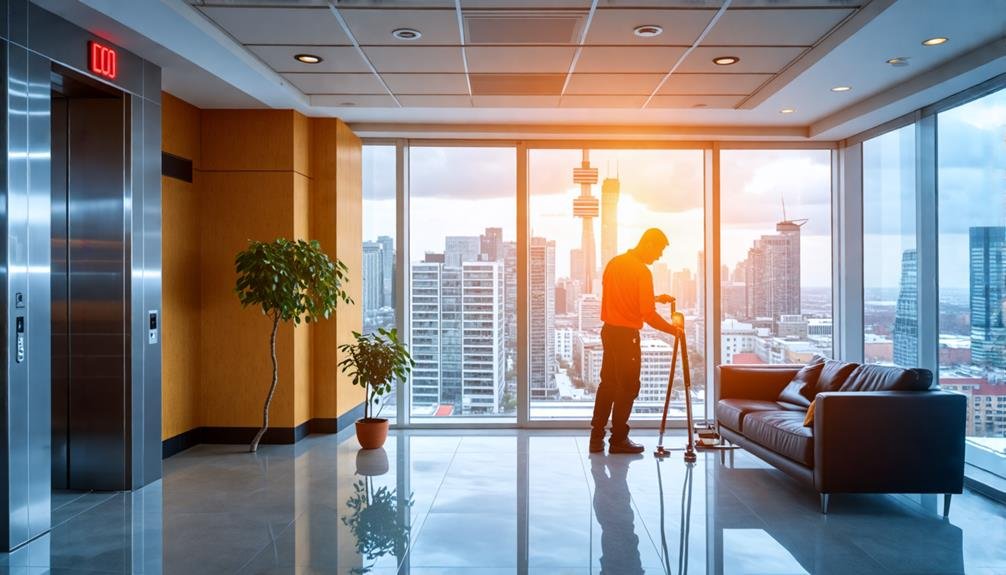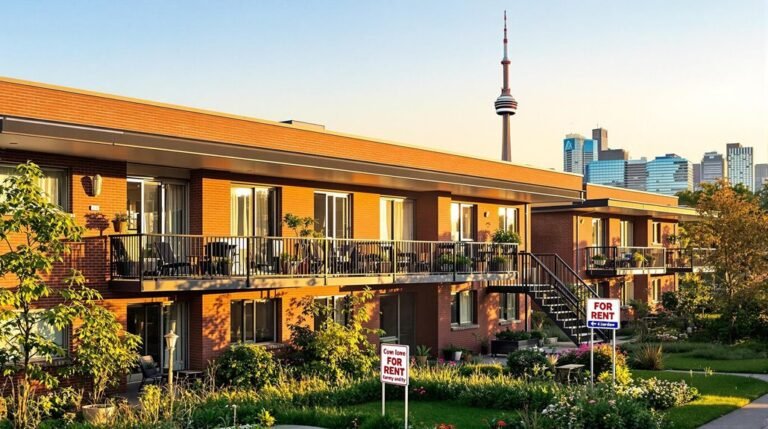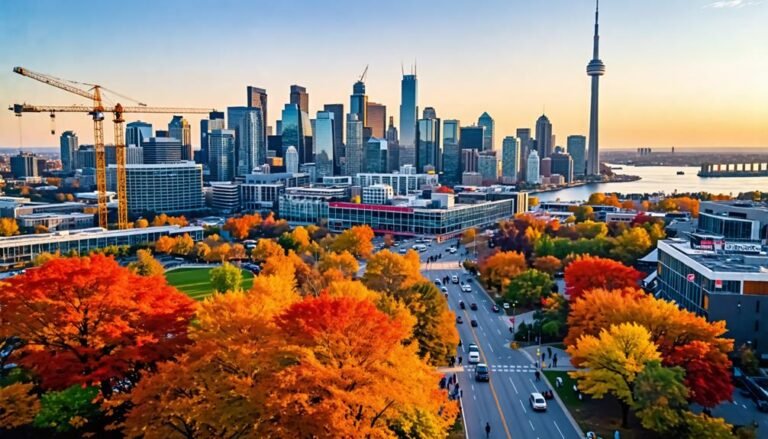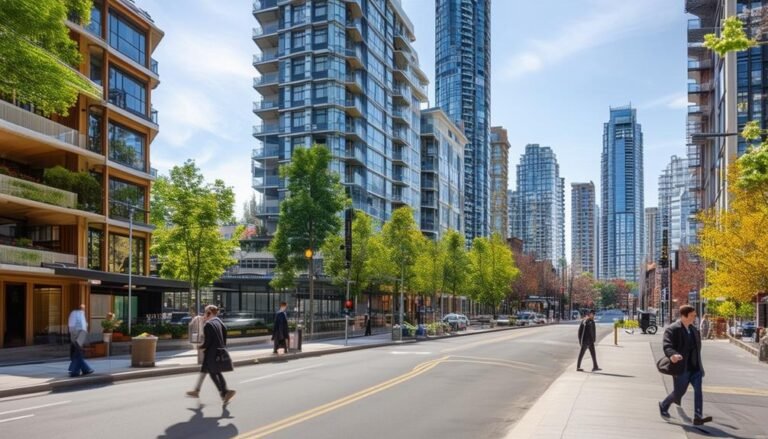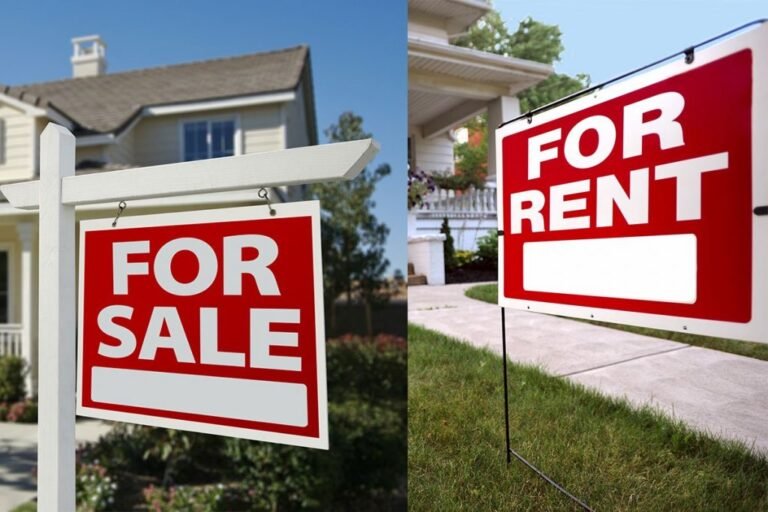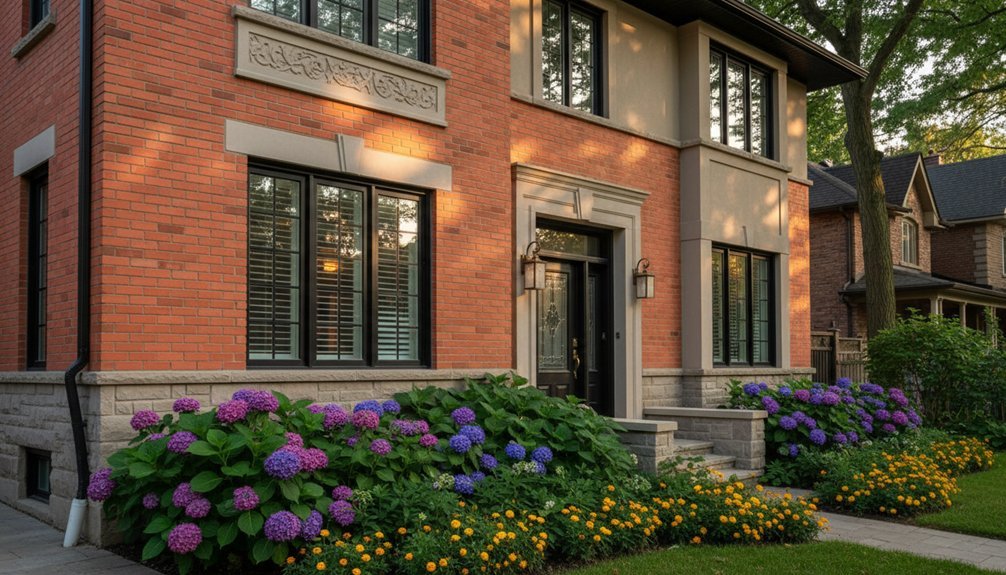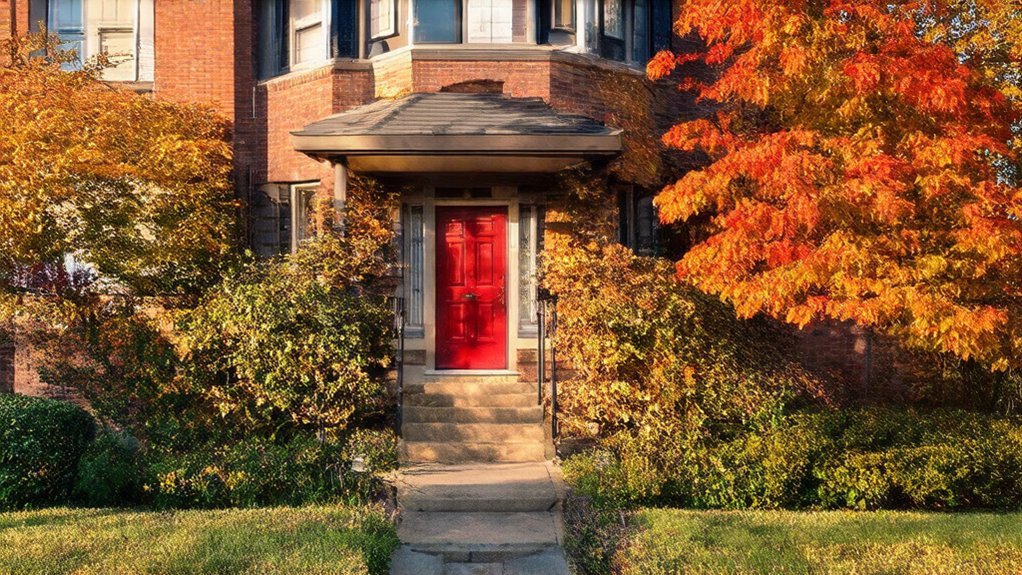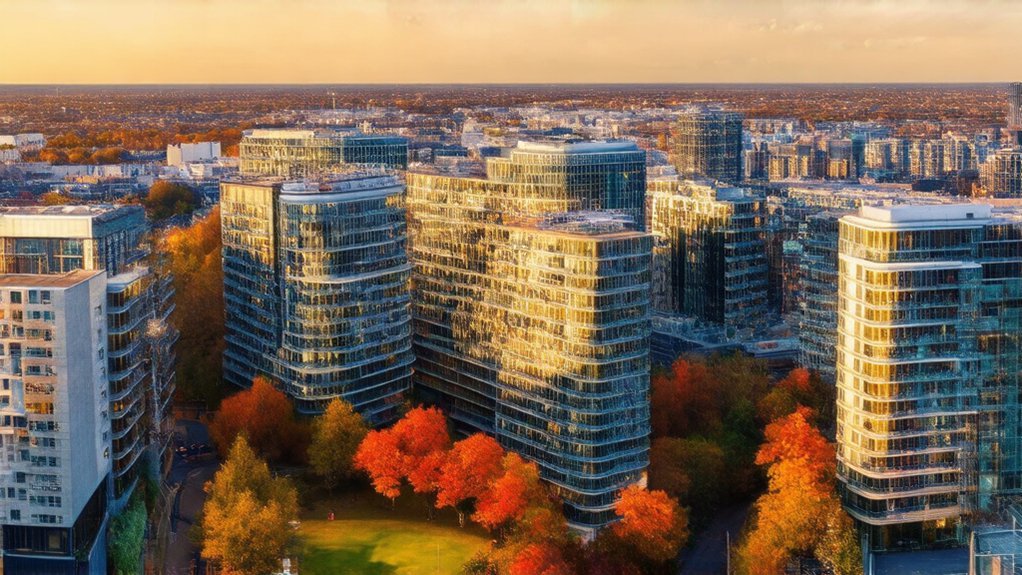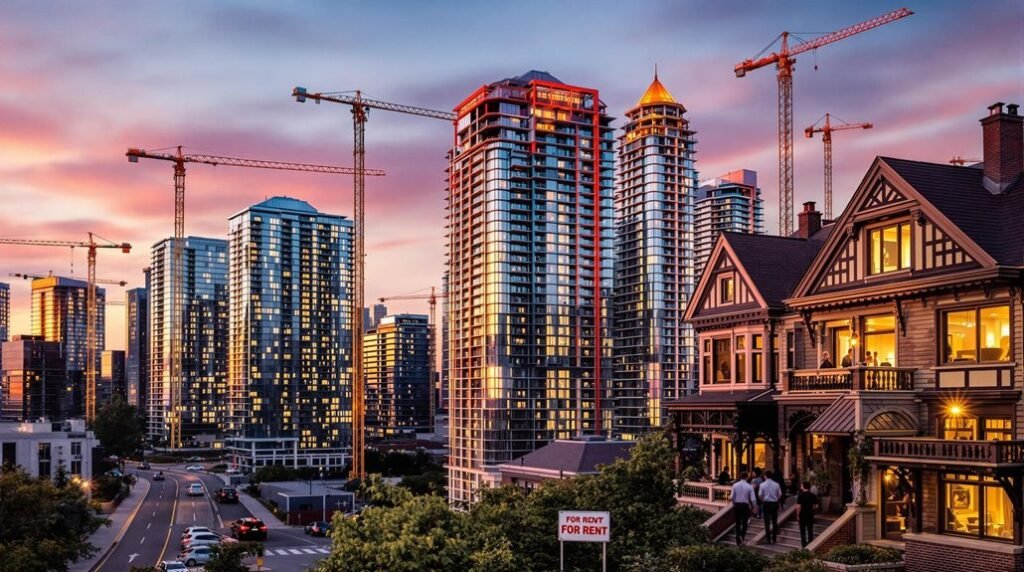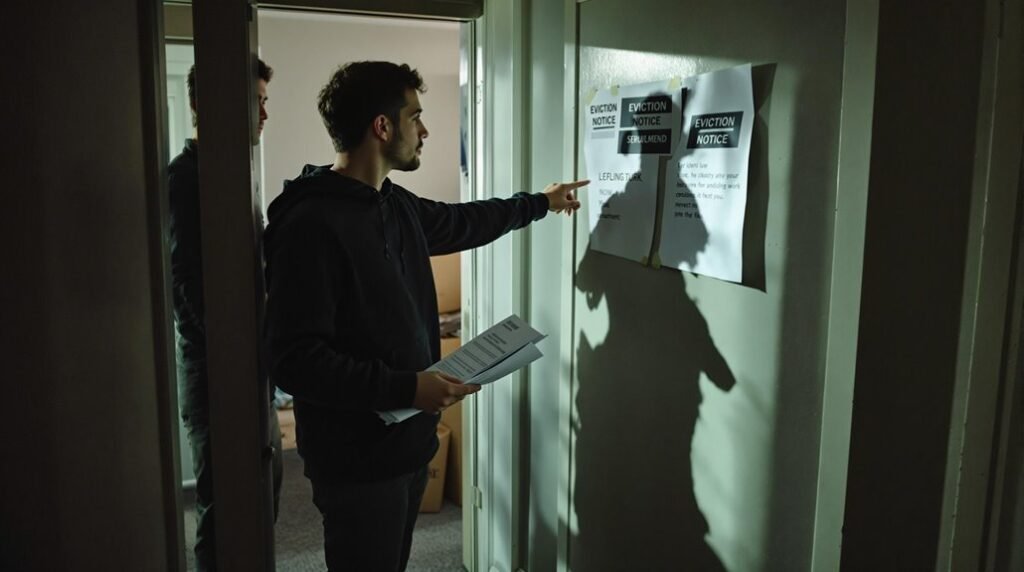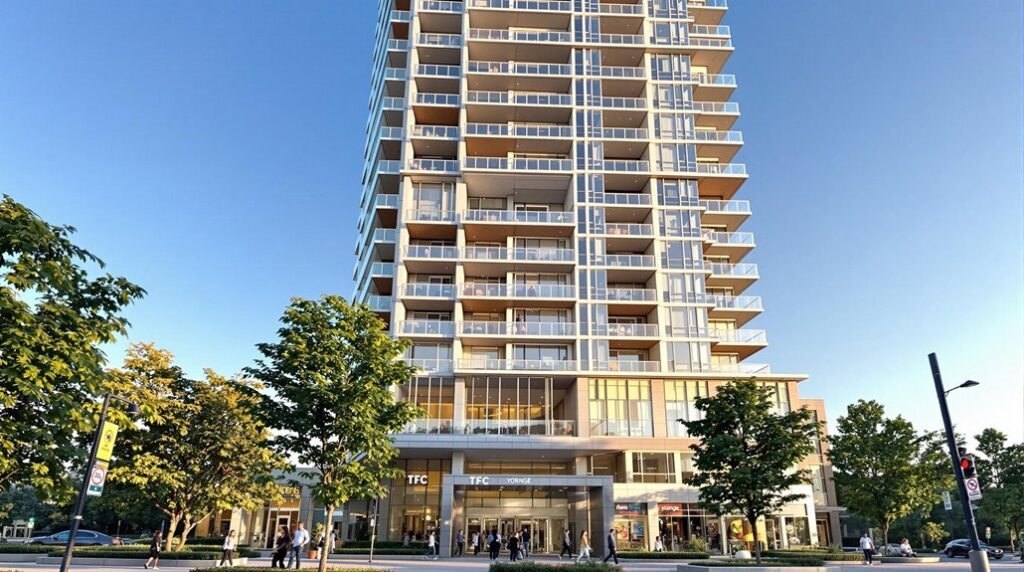As a landlord or tenant in Toronto, you’re bound by the Residential Tenancies Act and the city’s Property Standards Bylaw, which dictate the rules and regulations for rental property maintenance in 2024. You’ll need to understand your responsibilities for maintaining a safe and habitable living space, including prompt reporting of maintenance issues and timely repairs. Landlords must provide 90 days’ written notice for rent increases and maintain essential utilities and cleanliness. Familiarizing yourself with these regulations is vital for a smooth and compliant rental experience – and there’s more to explore to guarantee you’re fully informed.
Ontario Rental Housing Regulations
In Ontario, you’re subject to the Residential Tenancies Act (RTA), a set of rules governing rental housing that spells out the rights and responsibilities of both landlords and tenants. As a landlord or tenant, you need to understand these regulations to navigate the rental market successfully. The RTA sets out the rules for rent increases, evictions, and security deposits, among other things.
For instance, if you’re a landlord, you’re required to provide written notice for rent increases at least 90 days in advance. The maximum allowable increase is set annually by the Ontario government, so you’ll need to stay up-to-date on these changes. You’re also limited to charging one month’s rent as a security deposit, and you can’t charge extra fees like damage or pet deposits.
The RTA also outlines the responsibilities of landlords and tenants when it comes to property maintenance. Landlords are primarily responsible for guaranteeing the property is habitable and meets health and safety standards. If you’re a tenant, you’re required to report any maintenance issues promptly to your landlord. Understanding these regulations will help you avoid disputes and guarantee a smooth rental experience.
Tenant Rights and Responsibilities
As you navigate the rental market in Toronto, understanding your rights and responsibilities as a tenant is just as important as knowing the laws that govern landlords, and it starts with recognizing your right to a safe and habitable living space. You have the right to live in a rental property that is maintained in a habitable condition, meaning it must be safe, clean, and comply with health and safety standards.
You are responsible for promptly reporting maintenance issues to your landlord in writing, guaranteeing that your living conditions are addressed in a timely manner. Be aware that you’re liable for any damages caused by yourself or your guests, so take care of the space you rent. If you have concerns about common areas, such as hallways or yards, you have the right to request repairs and maintenance. Your landlord must keep these areas safe and clean for your use. Don’t try to withhold rent for unresolved issues; it’s not a recognized remedy under the RTA and may lead to eviction proceedings. Know your rights and exercise them responsibly to guarantee a smooth and safe living experience.
Landlord Maintenance Obligations
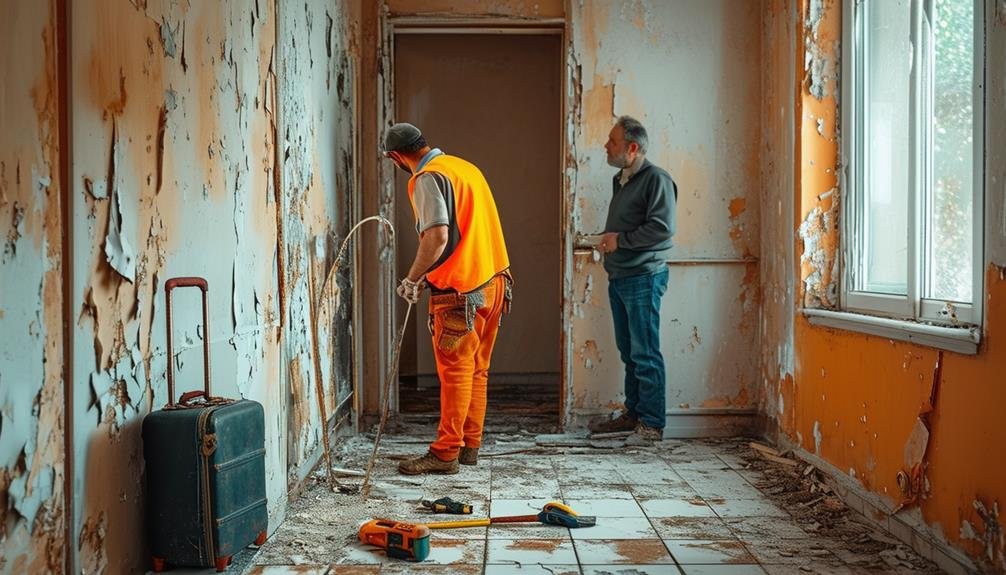
How does a landlord guarantee a rental property in Toronto remains safe and habitable for tenants, and what specific obligations must they fulfill to comply with the law? As a landlord, you’re legally required to maintain your rental property in a habitable condition, guaranteeing compliance with the Property Standards Bylaw. This means you must provide essential utilities, maintain cleanliness, and guarantee the property is free from hazards.
You’re also responsible for conducting timely repairs to issues such as plumbing, electrical systems, and structural integrity. When tenants report problems, you must address them promptly to avoid potential legal consequences. Regular inspections are encouraged to proactively identify and resolve maintenance issues, which can enhance tenant satisfaction and reduce turnover rates. Don’t forget to maintain and clean common areas, guaranteeing they’re free from hazards and properly maintained for tenant enjoyment and safety. Failure to maintain your property can lead to tenants withholding rent or filing complaints with the Landlord Tenant Board (LTB), so it’s essential to adhere to health and safety standards.
Rent Collection and Increases
When renting out a property in Toronto, you must follow specific guidelines for collecting rent and implementing increases to comply with the Residential Tenancies Act (RTA) and avoid potential disputes with tenants. You can’t mandate post-dated cheques or automatic debits, and you must provide receipts upon request. Rent is due in full on the specified day, and the maximum allowable rent deposit is equal to one rental period, which can only be used for the last month’s rent.
You’re also subject to regulated annual rent increases, which require notifying tenants at least 90 days prior to any increase. The Ontario government establishes guidelines each year, so be sure to stay informed. If you’re seeking an Above Guideline Increase (AGI), you’ll need to apply through the Landlord Tenant Board (LTB) and provide prior notice to your tenants. They have 12 months to dispute any improper rent increases. To guarantee transparency and compliance, maintain accurate records of all transactions, including rent receipts and deposits. This will help prevent disputes and keep you on the right side of the RTA. By following these guidelines, you’ll be able to collect rent and implement increases fairly and legally.
Lease Agreements and Terminations

Now that you’ve got a handle on rent collection and increases, you’ll want to focus on crafting solid lease agreements that protect both you and your tenants, and establish a clear understanding of the terms and conditions of the rental. In Ontario, lease agreements must be in writing, outlining the rental amount, duration, and included services. You’re required to provide tenants with a signed copy within 21 days of the tenancy start. Using the standard lease template is mandatory for most residential tenancies, guaranteeing clarity and compliance with the Residential Tenancies Act (RTA).
When a fixed-term lease expires, the tenancy automatically converts to a month-to-month agreement unless either party provides a written notice of at least 60 days to terminate. Remember, you can’t change locks or cut off services without a court order. A lease can only be terminated by mutual agreement or through proper legal channels. Tenants have rights that protect them from unlawful eviction practices. By following these rules, you’ll guarantee a smooth and lawful tenancy process. Make sure you’re aware of your responsibilities as a landlord to avoid potential disputes and penalties.
Property Insurance and Liability
As a landlord in Toronto, you’ll need to secure property insurance that protects you against damages, liability claims, and tenant-related incidents to safeguard your investment. Property insurance typically covers you for $1 million to $5 million, depending on your property’s value and risk factors. You’ll also want liability insurance, which safeguards you from legal claims resulting from injuries or accidents on your rental property. Conduct regular insurance policy reviews to guarantee you have adequate coverage that reflects your property’s current value and evolving risks.
As a landlord, your property insurance premiums will vary widely, averaging between $800 and $2,500 annually, depending on factors like property size, location, and security features. Meanwhile, it’s essential to advise your tenants to obtain renters insurance to protect their personal belongings against theft or damage. This can mitigate disputes over property damage and enhance overall safety. By securing the right insurance coverage, you’ll be better equipped to handle the unexpected and protect your investment. Make certain to prioritize insurance to avoid insufficient compensation in case of a loss.
Handling Tenant Complaints
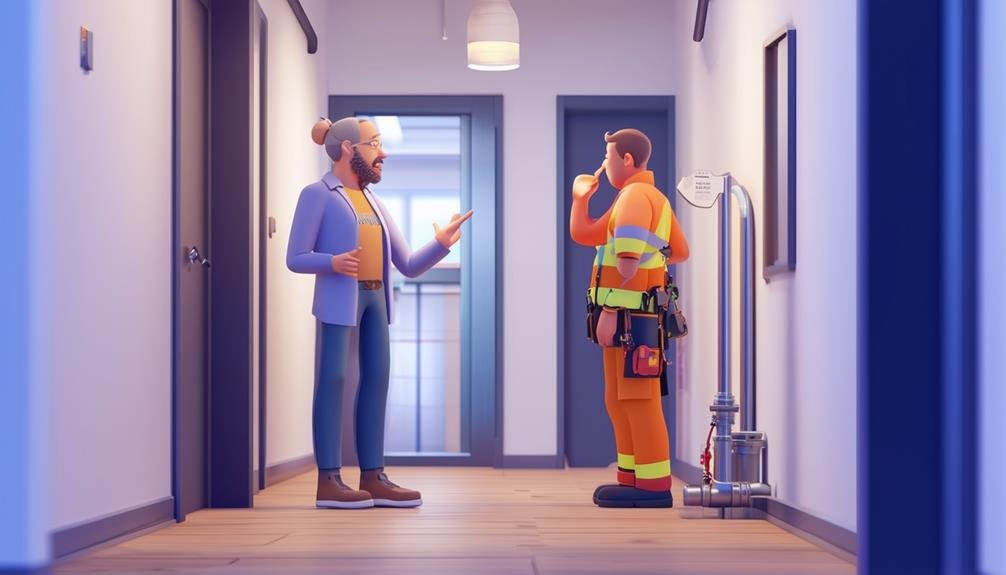
To maintain a positive landlord-tenant relationship and comply with the Residential Tenancies Act (RTA), you must establish a clear process for handling tenant complaints in your Toronto rental property. As a landlord, you should encourage your tenants to submit repair requests in writing, keeping a copy of the request and noting the dates and responses for future reference. This will help prevent miscommunications and guarantee that issues are resolved promptly.
If a complaint is made, you should respond promptly and document all correspondence with your tenant. This will help you track the progress of the issue and demonstrate your efforts to resolve it. Effective communication channels are essential for addressing complaints and maintaining a positive relationship. If you fail to address a complaint, your tenant may escalate the matter by submitting a service request to 311 or filing a T6 form with the Landlord Tenant Board (LTB). By establishing a clear process for handling complaints, you can reduce the risk of disputes and maintain a positive landlord-tenant relationship. You must document all tenant complaints and your responses to guarantee compliance with the RTA.
Dispute Resolution and Mediation
Even with a clear process for handling tenant complaints in place, disputes can still arise, and that’s when you need to understand your options for dispute resolution and mediation under the Residential Tenancies Act (RTA). The RTA offers a framework for resolving disputes between landlords and tenants, mainly through the Landlord Tenant Board (LTB). If you’re a tenant and your landlord hasn’t addressed a maintenance issue, you can file a T6 form with the LTB to formally dispute the matter.
The LTB also provides mediation services where you and your landlord can engage in facilitated discussions to reach a mutually agreeable solution without a hearing. Remember, as a tenant, you’re protected from retaliation by your landlord for asserting your rights under the RTA. Keep detailed records of all interactions and correspondence regarding the dispute, as this documentation may be required during mediation or a hearing at the LTB. Effective communication is key to resolving disputes efficiently. By understanding your options for dispute resolution and mediation, you can guarantee that your rental property is properly maintained and your rights are respected.
Toronto Bylaws and Enforcement
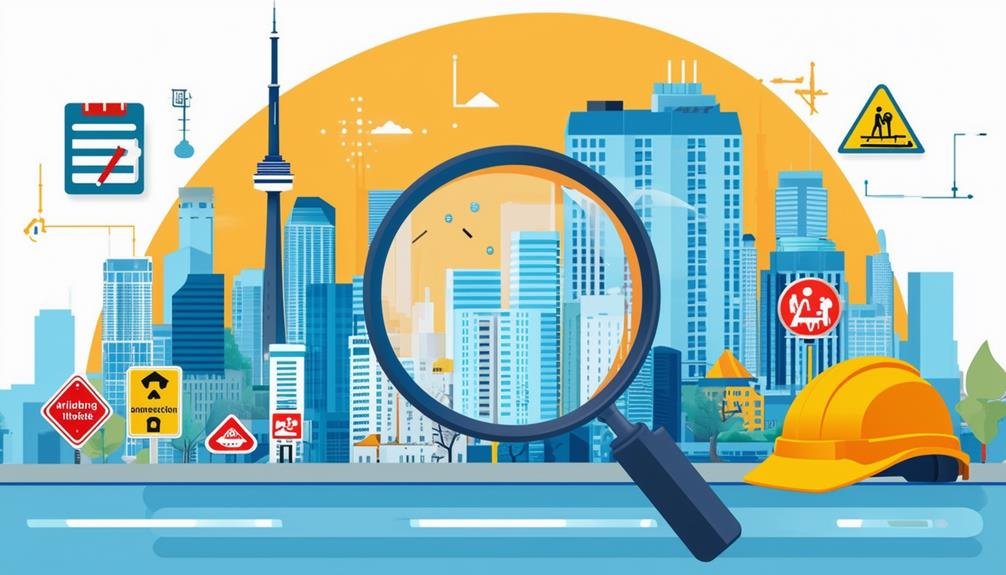
Under the umbrella of Toronto’s municipal regulations, you’ll find specific bylaws that govern rental property maintenance, including the Property Standards Bylaw, which sets the bar for safety, health, and livability in all rental properties. This bylaw mandates that all rental properties meet minimum requirements, including structural integrity and access to essential utilities like water, heat, and electricity. As a landlord, you’re responsible for guaranteeing your property complies with these standards. If you’re a tenant, you have the right to report any violations to the City, which will initiate an investigation if your landlord fails to address the issue in a timely manner.
You should also know about the RentSafeTO Program, which requires landlords of larger apartment buildings to respond to urgent maintenance requests within 24 hours and non-urgent requests within seven days. While local housing authorities conduct regular inspections to enforce these bylaws, limited resources and variability in compliance across regions can pose challenges. As a tenant or landlord, it’s essential to understand these bylaws and your role in maintaining safe and healthy living conditions. By doing so, you can help guarantee that rental properties in Toronto meet the highest standards.
Frequently Asked Questions
What Are the Rent Laws in Ontario 2024?
You’re wondering about Ontario’s rent laws in 2024. As a tenant or landlord, you need to know that rent increases are capped at 2.5% annually, and landlords must provide a 90-day written notice using Form N1 before implementing any increase.
What Is the Rent Control in Ontario 2025?
You’re subject to Ontario’s rent control in 2025, which limits rent increases to once every 12 months, with the maximum allowable percentage determined by the provincial government; you’ll need to wait for the annual announcement for specifics.
Does a Landlord Have to Paint Between Tenants in Ontario?
“Measure twice, paint once” rings true for Ontario landlords! You don’t have to repaint between tenants unless it’s necessary to keep the property habitable. However, a fresh coat can boost appeal and attract new renters.
What Is the New Tenant Law in Ontario?
You’re likely referring to the law that took effect January 1, 2024, which increases tenant protections against evictions and prohibits unjustified “renovictions” in Ontario, affecting both you and your landlord’s responsibilities.
Conclusion
You’ve made it through the complex world of Toronto rental property maintenance! As a landlord or tenant, it’s a monumental task to stay on top of Ontario’s rental housing regulations, but doing so will save you a million headaches down the line. By knowing your rights and responsibilities, you’ll avoid potential pitfalls and guarantee a smooth, stress-free rental experience. Stay informed, stay vigilant, and you’ll be just fine in the Toronto rental jungle.


